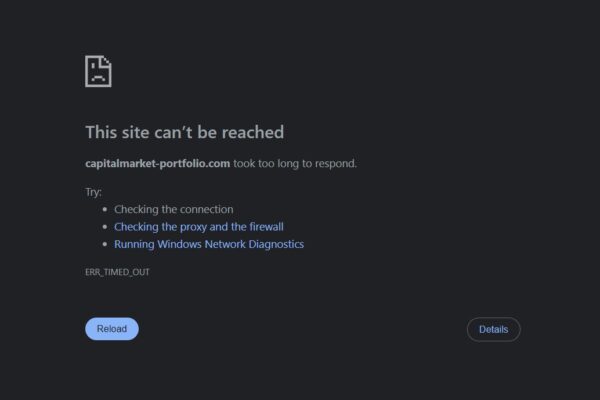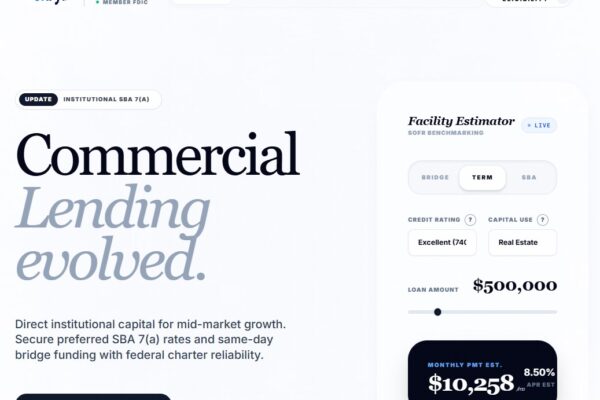Equithy.com Scam Review -An Unprofessional Broker
If you’ve been researching Equithy.com because it popped up in an ad or a recommendation, you’re doing the right thing by pausing and investigating. On the surface Equithy looks like a modern investment or trading service: slick website, confident copy about returns and account tiers, and the sort of UI that gives newcomers a warm, professional feeling. But when you scratch beneath that polish, a stack of worrying signals appears — user complaints, missing regulation, anonymous ownership and patterns that match many fraudulent broker schemes.
Below you’ll find a long-form, blog-style deep dive that unpacks the red flags, explains how the typical scam playbook works, and helps you decide whether this brand is worth trusting (short answer: it isn’t). I won’t give recovery tips or post links — this is an informational warning focused on the operation itself.
First impressions: shiny website, soft disclaimers
Equithy’s website is built to impress: professional typography, tidy product pages, and language about “asset management”, “tailored portfolios” and “institutional tools for the retail investor.” That combination is designed to lower skepticism. It implies a sophisticated backend and a regulated firm.
Reality check: professional design is a low bar. Scammers have learned to clone the look and feel of legitimate firms very cheaply. The presence of a glossy UI tells you nothing about compliance, custody, or whether your money will ever be reachable.
Big red flag #1 — regulation and licensing (or lack of it)
The single most important question to ask of any platform handling investments is: who regulates them? Reputable brokers and fund managers publish registration or licence numbers you can verify with the regulator. Equithy, by contrast, repeatedly fails that basic test: independent safety evaluations and legal reviews flag Equithy as lacking a verifiable licence from a reputable top-tier regulator and urge caution.
That matters because without real regulation there’s no independent oversight, no requirement to keep client funds segregated, and no investor-compensation framework to fall back on. In plain English: if the platform misuses funds, you’ll have almost no official mechanism to force a refund.
Red flag #2 — user complaints about withdrawals and pressure to deposit
Across multiple review platforms, a consistent pattern emerges: customers report that deposits are accepted easily, account dashboards sometimes show growth, and then withdrawals become difficult or impossible. Complaints include requests to pay extra “processing” or “tax” fees before funds can be released, repeated demands to deposit more to reach arbitrary thresholds, and sudden unresponsiveness from account managers. Several review pages show harmed customers describing precisely this deposit→profits→withdrawal-blocked cycle.
That pattern — early wins on a dashboard (which can be simulated) used to build trust, followed by sudden withdrawal friction — is the hallmark of numerous broker scams around the world. When many independent users report the same sequence, treat it as a systemic problem, not an isolated glitch.
Red flag #3 — anonymous or opaque ownership and corporate structure
Legitimate investment firms list corporate information: company registration number, registered office, directors, and regulatory disclosures. Equithy’s public footprint is opaque: ownership is unclear, corporate disclosures are minimal, and domain-registration details are often privacy-protected. That lack of transparency removes accountability and makes enforcement or legal action difficult if things go wrong. Independent reviewers explicitly call out that Equithy’s ownership and oversight are unclear — another reason to be suspicious.
Red flag #4 — too-good-to-be-true returns and marketing tactics
Equithy’s marketing often emphasises strong returns, fast growth, and tailored strategies that promise outsized gains. Legitimate, regulated financial firms carefully balance marketing with risk disclosure — they don’t guarantee returns. When a platform foregrounds profit promises and downplays downside, it’s time to step back. In Equithy’s case, reviewers and safety sites note an emphasis on returns without the usual regulatory caveats expected from real brokers.
What users report — the human story behind the numbers
Reading actual complaints is where the abstract warning signs become real people losing real money. Examples compiled by consumer review sites show consistent narratives:
-
A depositor places funds and sees the account balance rise.
-
They’re contacted by an enthusiastic “account manager” who encourages bigger deposits to unlock “VIP strategies.”
-
When the user requests withdrawal, new conditions appear: minimum turnover requirements, unexpected release fees, or jumpy KYC demands.
-
Communication deteriorates; account access may be restricted; funds are locked.
Those kinds of stories are emotionally devastating for victims: many describe the experience as betrayal, because the early interactions felt personal and supportive. Those personal relationships are exactly what the operators rely on to scale the scheme.
Multiple review portals and safety sites carry these types of reports about Equithy.
The likely playbook behind Equithy (how the scheme operates)
Putting the public signals together, here’s the probable operational flow — it follows the classic broker-scam blueprint:
-
Lead capture — ads, social posts, or cold outreach collect emails and phone numbers.
-
Smooth onboarding — the site asks for a deposit (often a modest amount to lower resistance).
-
Confidence building — the dashboard shows inflated or simulated gains; “account managers” call to coach and upsell.
-
Escalation — users are persuaded to deposit larger sums for “VIP” access.
-
Withdrawal friction — the operator invents obstacles (fees, tier requirements, extra verification) whenever a withdrawal is requested.
-
Exit or evasion — once sufficiently harvested, the site may go dark, rebrand, or simply stop responding.
Operators running this scheme frequently rotate domain names and brand identities to stay a step ahead of complaints and regulator attention. That’s why you often see multiple review pages for slightly different brand variants.
How Equithy compares to a legitimate broker
To make the difference concrete, here’s a short checklist of what reputable firms provide — and how Equithy measures up:
-
Regulatory licence and verifiable registration — expected from a legitimate broker; Equithy lacks clear proof.
-
Transparent corporate info (addresses, directors) — expected; Equithy’s disclosures are thin or anonymous.
-
Real withdrawal history visible in reviews — legitimate brokers enable small test withdrawals; Equithy reviews show repeated withdrawal problems.
-
Balanced marketing with risk disclosures — legitimate; Equithy’s messaging focuses on gains.
When several boxes are unchecked, you’re facing a much higher risk profile.
Why regulation matters — and what you give up without it
Regulators do more than deliver paperwork: they require capital buffers, client-money segregation, audits, anti-money-laundering checks and a complaints framework. If a platform lacks that apparatus, your funds may be treated as the operator’s cash rather than client money. That’s not a legal nuance — it’s the difference between recoverable funds and money that can be moved and laundered with little trace.
Independent reviewers explicitly advise avoiding brokers that do not operate under top-tier regulation; Equithy falls into that avoid category in several safety evaluations.
The darker economy around fake reviews and “recovery” agents
One more structural risk to be aware of: fake positive reviews and the ecosystem of “recovery agents.” Some platforms attempt to drown out negative reports with paid or fabricated testimonials, which makes due diligence harder. And once people are scammed, they’re often targeted again by fake recovery services that demand fees to “help” retrieve funds. Several Equithy-related review pages show patterns consistent with both phenomena: suspiciously glowing testimonials on some pages, and desperate pleas on others. That tangled mix further complicates any attempt to separate true experiences from manipulation. Reviews.io+1
Final verdict: treat Equithy.com as high-risk and likely a scam
Weighing the evidence — absence of credible regulation, repeated user complaints describing the exact scam mechanics, opaque ownership, and safety reviews warning against the brand — the prudent conclusion is that Equithy.com should be treated as a high-risk platform and likely fraudulent. Multiple independent reviewers and safety sites arrive at the same concern: stay away and do not treat deposits as safe.
Quick checklist before you ever hand over funds to an online broker
(Use this checklist for Equithy or any other platform.)
-
Can I verify a licence number with an actual regulator?
-
Is the company registered in a real jurisdiction with listed directors?
-
Can I withdraw a small amount quickly and reliably?
-
Do independent reviewers show consistent, verifiable successful withdrawals?
-
Are there many verified negative reviews describing the same withdrawal/fee trap?
If you can’t answer those convincingly for a platform, treat it as extremely risky.
Closing thoughts
The internet has made it easier than ever to look like a credible financial firm. Professional design, convincing marketing copy, and polished dashboards are no substitute for regulation, transparency, and a reliable withdrawal record. Equithy.com presents all the surface signals of a sophisticated service but fails at the underlying checks that matter most for investor safety.
If you already have an account with Equithy, assume the worst about the security of your funds; be careful about giving them any more information or money, and document all communications. If you’re shopping for a broker, prioritize verifiably regulated firms with transparent corporate records and clear, tested withdrawal procedures.
Report Equithy.com Scam and Recover Your Funds
If you have lost money to Equithy.com Scam, it’s important to take action immediately. Report the scam to Jayen-consulting.com, a trusted platform that assists victims in recovering their stolen funds. The sooner you act, the better your chances of reclaiming your money and holding these fraudsters accountable.
Scam brokers like Equithy.com continue to target unsuspecting investors. Stay informed, avoid unregulated platforms, and report scams to protect yourself and others from financial fraud.
Stay smart. Stay safe.






